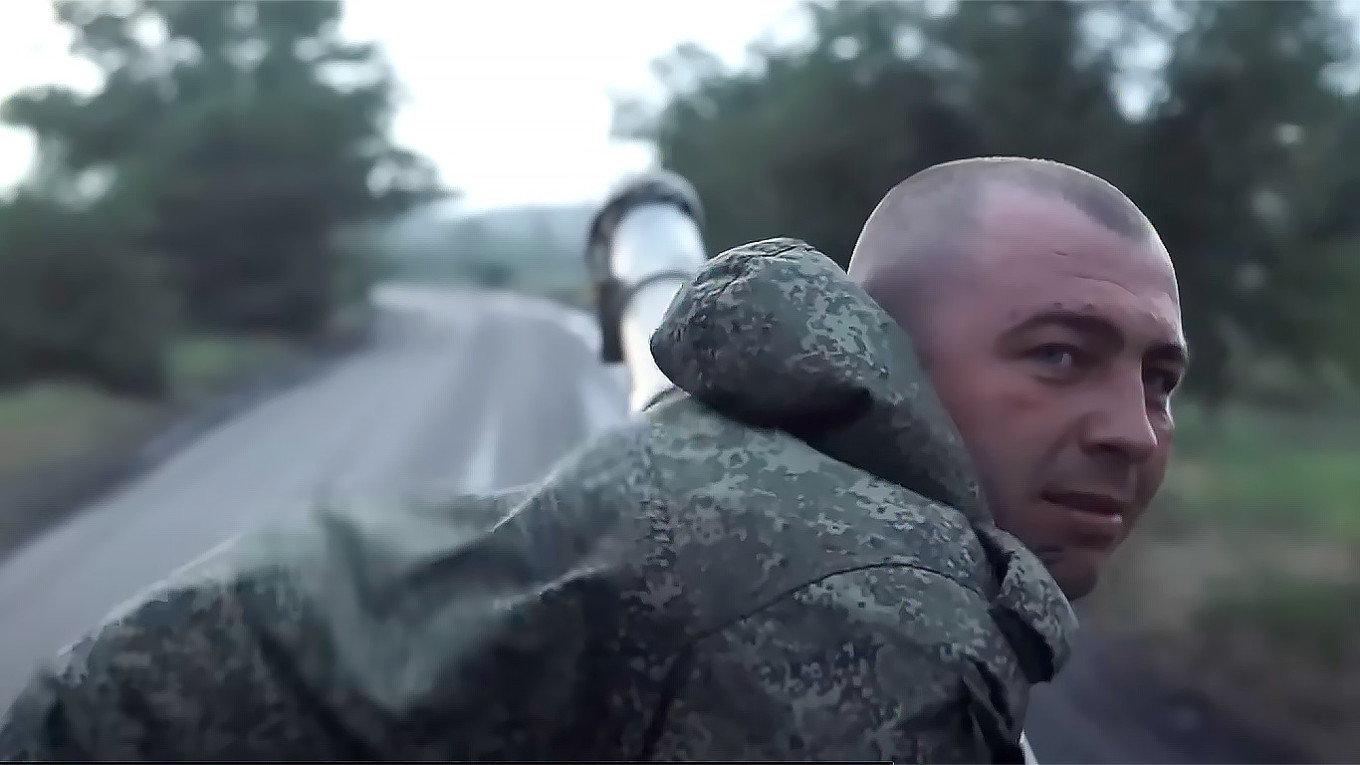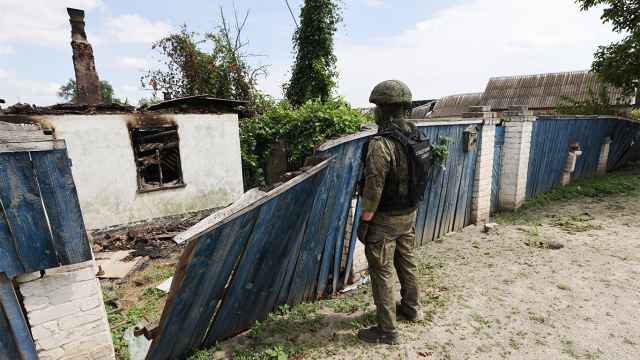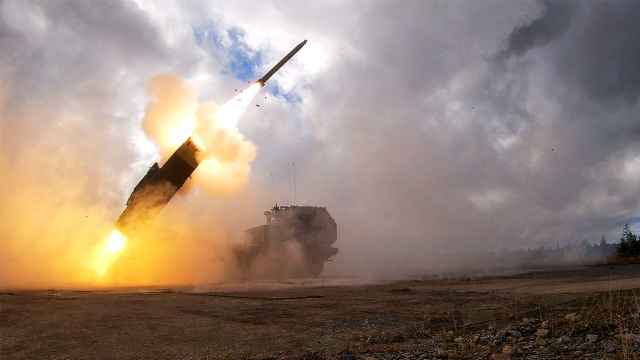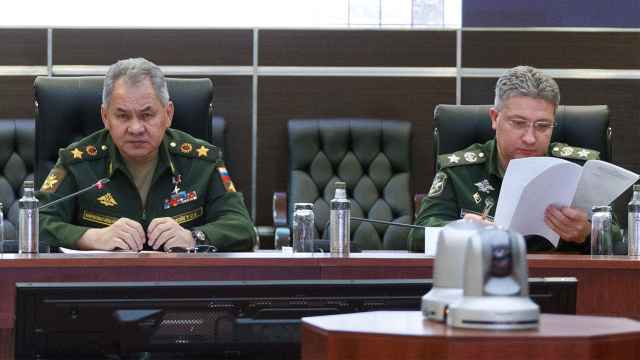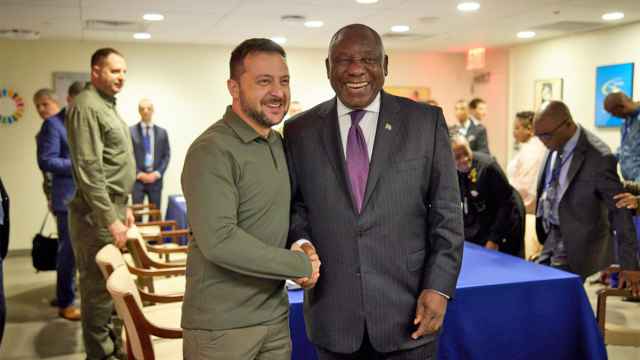Understanding why and how soldiers can commit war crimes — and how the observer can ethically produce work that hears from perpetrators without empathizing with them — has been hotly debated by scholars and analysts since World War II.
That debate has returned to the spotlight thanks to the controversial decision by two renowned international film festivals to screen Russian-Canadian filmmaker Anastasia Trofimova’s work “Russians at War.”
According to the director, Trofimova spent several months embedded with Russian troops in occupied Ukraine, without permission from the Russian Defense Ministry, as an “unauthorized” fly on the wall. The film purports to show the lives and “sacrifice” of Russian troops, whose voices — those of “absolutely ordinary guys” in Trofimova’s words — have been neglected. According to the synopsis posted on the Toronto International Film Festival website, “Russians at War” is an exploration of colonization and war, unabashedly billed as an “anti-war” film.
These contentions have led to a flurry of criticism, including from the Ukrainian authorities, accusing Trofimova’s work of unjustly privileging Russian experiences and narratives over those of Ukrainian victims. The online fury has only been amplified further by Trofimova’s background as a documentary producer for the Kremlin-owned propaganda outlet RT, including a film about female Kurdish soldiers that was released at the height of Russia’s violent intervention in Syria. Trofimova claims to have left the RT payroll in 2020 and now works with international funding, including money from the Canadian government.
Putting aside the unproven claims that Trofimova is still a paid-up propagandist, reactions from those who have actually seen the film suggest that its critics have been right to be skeptical. Most egregiously, “Russians at War” does not mention Moscow’s invasion of Crimea in 2014, nor does it consider or show much of the effects of violence committed by Russian forces in Ukraine. This suggests that Trofimova’s approach has led her into a trap that afflicts every scholar and artist seeking to explore the psyches of war criminals: the fine line between deconstructing or uncritically reproducing the narratives her subjects and their commanders favor.
This issue begins with Trofimova’s role in the movie’s creation and framing. She has taken pains to stress that the film was made without the Russian state’s permission and to distance herself from her own former role with RT (a fact that is omitted from her official biography) and from the murky world of the constant churn of disorienting, contradictory propaganda that emanates from the Kremlin.
Indeed, “Russians at War’s” trailer opens with Trofimova addressing the camera to claim that she is traveling to the front “at her own risk, without permission from the [Defense Ministry]. Sort of in secret.” This claim hardly stands up to scrutiny: in a country where independent journalism simply does not exist and access to military facilities and positions is tightly controlled, it seems unlikely a filmmaker would have been able to spend months at the front without the authorities’ knowledge and therefore implicit permission. It is hardly unreasonable to ask Trofimova to transparently address how she avoided arrest, and vague claims that there was no “dialogue” with the Russian state hardly pass muster.
At best, Trofimova must have been implicitly given permission to work at the front. Her narrative stance resembles more closely that of a Russian “war blogger” than an independent Western journalist (although even Western militaries keep a tight lid on correspondents’ movements at the front). The “war bloggers,” who run enormously popular Telegram channels, are permitted some access to the front and have relatively free rein to produce material that is sometimes critical of the state’s war efforts. While they are keen to assert their independence, these bloggers could not operate without the Kremlin’s permission. Indeed, their material is regularly shared by state media channels and some have even met President Vladimir Putin himself. Their work adds to Russia’s tapestry of narratives that broadly promote the state’s overall narratives while providing an outlet for various groups in society to feel that their voices have been heard. The Kremlin uses these bloggers, then, to create the impression of freedom, while actually adding to confusion about what it really believes and what is real and false.
Trofimova, whether wittingly or not, provides another such vent. This time, for a part of Western society keen to hear a supposed hidden side of a violent conflict that has in reality left thousands of Ukrainians dead or subjected to crimes of torture and sexual violence. Her Russian soldiers are transformed into passive vessels of state power: as “pawns in a nefarious game” who simply carry out orders given to them. According to one soldier, they are led “like blind kittens,” helpless to intervene in the crimes committed in Ukraine that are totally absent from Trofimova’s vision of the war. Thus, Russia’s war criminals are transformed from agents into instruments of history — a narrative that absolves them of all moral responsibility in an alarming reiteration of the “just following orders” narratives that were common in early discussions of the role of ordinary German soldiers in the Holocaust.
Gathering the testimonies of war criminals and the enemy played an important role in understanding how ordinary men just like those that Trofimova seeks to center came to commit the most abhorrent of crimes in the 20th century. To understand and explain is not, as Christopher Browning wrote in his pioneering study of ordinary Germans at war, to empathize.
However, exploring the milieu of war crimes requires careful self-examination, an explicit understanding of one’s own relation to violence, and critical attempts to deconstruct the justifications given by criminals about their activities. Above all, exploring witness testimony means accounting frankly for the crimes that have been committed.
In “Russians at War,” Trofimova asserts on camera that “the fog of war is so thick that you can’t see the human stories it’s made of.” Yet through the approach she has taken — which skirts around questions of Ukrainian humanity and suffering, the agency of Russian soldiers and her own documentary process — she is bound to create a film that will do little but thicken the fog of war even further.
A Message from The Moscow Times:
Dear readers,
We are facing unprecedented challenges. Russia's Prosecutor General's Office has designated The Moscow Times as an "undesirable" organization, criminalizing our work and putting our staff at risk of prosecution. This follows our earlier unjust labeling as a "foreign agent."
These actions are direct attempts to silence independent journalism in Russia. The authorities claim our work "discredits the decisions of the Russian leadership." We see things differently: we strive to provide accurate, unbiased reporting on Russia.
We, the journalists of The Moscow Times, refuse to be silenced. But to continue our work, we need your help.
Your support, no matter how small, makes a world of difference. If you can, please support us monthly starting from just $2. It's quick to set up, and every contribution makes a significant impact.
By supporting The Moscow Times, you're defending open, independent journalism in the face of repression. Thank you for standing with us.
Remind me later.



